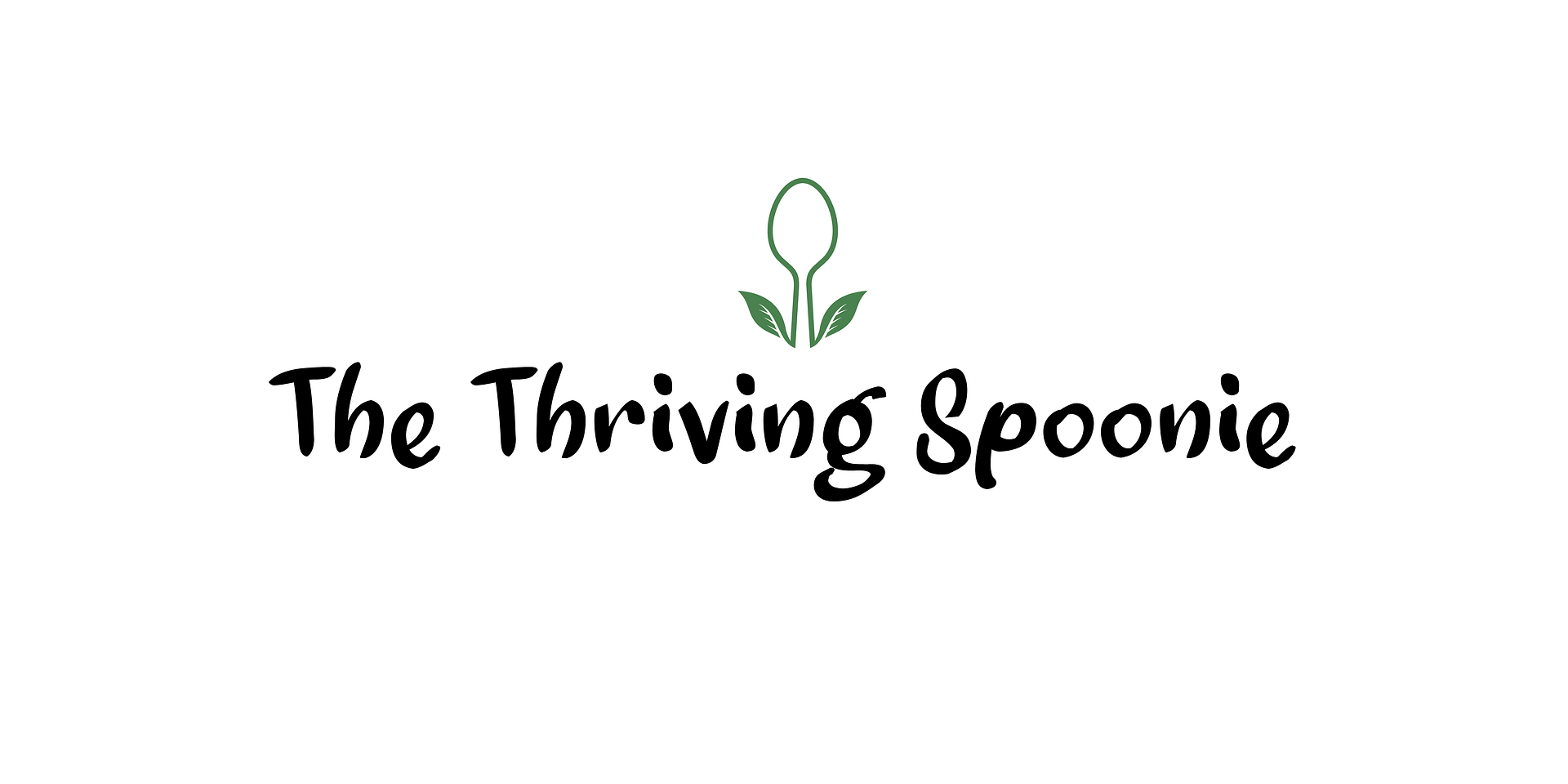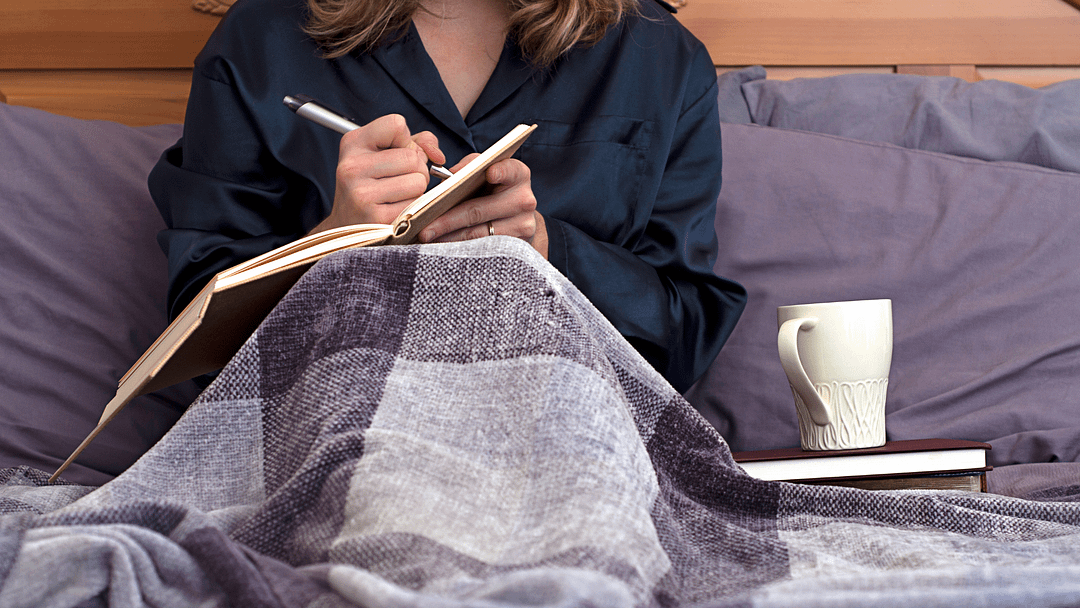Get your copy of the Daily Routine Guidebook for Spoonies!
Discover empowering strategies for thriving despite chronic challenges with the Daily Routine Guidebook for Spoonies. Start reclaiming your days, one step at a time.
Disclaimer: While I offer tips for maintaining wellness while dealing with a chronic illness, I’m not a licensed medical physician, psychotherapist, or psychologist, and I’m not offering medical or psychiatric advice.
For my full disclaimer policy, go here.
Flare days are hard.
On top of all the everyday responsibilities you have, you have to deal with your chronic illness making things harder. This may mean pain, fatigue, nausea, difficulty concentrating, or all of the above.
And I bet you’d do anything to find some kind of relief, to be able to take care of more than just your physical needs, and to help yourself feel nurtured and soothed during this tough time.
So, you open up your favorite social media platform and start searching for some self-care ideas.
And while there are millions out there that include everything from luxury bubble baths to meditating or doing yoga, none of it fits. The ideas either take too much energy, aren’t physically accessible, or just aren’t what will help you feel better right now.
And that’s because mainstream self-care techniques aren’t made for chronically ill bodies.
In this post, I’m going to introduce you to the 7 Pillars of Self-Care – Spoonie-style.
We’ll go over why approaching self-care in a more holistic way can help us, even on our worst days. I’ll also share with you 35 ideas for self-care that are catered to things that can easily help you find real relief and ease on those days when your chronic illness is in control, as well as help keep things steady on better days.
There’s a lot of detailed ideas in this post, so grab whatever makes you feel comfy, and let’s dive in!

Did you know there are 7 main areas to focus on when it comes to self-care?
The World Health Organization (WHO) defines self-care as “the ability of individuals, families and communities to promote health, prevent disease, maintain health, and to cope with illness and disability with or without the support of a healthcare provider”.
That sounds really different from what most of us think of when we hear the word self-care, right? I know I used to think of self-care as simply treating myself to a long bath or binging my favorite Netflix show.
But if we take an approach to self-care that is more holistic, to really try to stick with the definition of self-care provided by the WHO, we can see that self-care is really more about caring for ourselves on every level.
That’s why learning about these 7 main areas of self-care (also known as the 7 pillars of self-care) is so important and helpful.
The 7 main areas of self-care are:
- Mental
- Emotional
- Physical
- Environmental
- Spiritual
- Recreational
- Social
By using these 7 pillars as guideposts for practicing self-care in every area of our lives, we can nurture our whole being and ease some of the challenges that we face as we navigate through our lives with chronic illness.
Keep in mind, too, that it’s important to attend to our wellness even when we’re not dealing with a flare, so we can continue to feel as good as we can as often as we can.

Wondering how can you adapt the 7 pillars of self-care to help you cope with chronic illness?
Now that you have an idea of what areas of your life you can apply self-care practices to, it’s time to take a look at how to do this as someone with a chronic illness.
Because let’s face it: what works for “normies” (those without chronic illness) doesn’t often work for people with chronic illness.
Your needs, abilities, and energy levels are different. What seems helpful or fun to others may not be for you.
And by focusing on little things that can have a big impact for you, you’ll be empowered to take the best care of yourself that you can while also seeing measurable results.
35 self-care ideas for those with chronic illness
based on the 7 pillars of self-care
Mental Self-Care
- Seek professional help from a coach or therapist when needed to help you cope with your chronic illness
- Learn to set boundaries to honor your physical and mental needs and protect your limited energy
- Practice self-awareness of your mindset and self-talk
- Spend time reading, watching documentaries, playing video or board games, hobbies and doing other activities that stimulate your mind
- Learn something new to expand your knowledge
Emotional Self-Care
- Honor your emotions as they arise – even the tough & uncomfortable ones
- Journal to express your feelings
- Listen to your favorite music to uplift you
- Do some EFT Tapping to help process the tough emotions
- Join a support group for people with chronic illness who will understand your daily challenges
Physical Self-Care
- Prioritize sleep & rest – rest is so important, especially for spoonies
- Eat nourishing foods when you’re able to help maintain your energy and overall wellness
- Practice sustainable, loving movement like tai chi, yoga, or dance
- Get fresh air & sunlight – simply opening the blinds and windows counts if you’re unable to leave the house/hospital
- Sticking to your treatment plan is another important way to maintain your physical wellness

Environmental Self-Care
- Make sure you have what you need to create a comforting environment for you and appeal to your five senses (sight, smell, taste, sounds, touch), to keep yourself feeling cozy on good days and bad
- Keep your space tidy – even if it’s just where you spend the most of your time, a clean and organized space makes a huge difference in our wellness. Stock up on disposable items and keep a trash bin nearby to make this easier
- Environmental self-care can also mean keeping your “spoonie supplies” nearby for those random flares that like to just creep up on you. I have a box on my side table where I keep stuff so I don’t have to get up as often.
- Getting out of the house if you can is perfect for changing up your environment, but if you find yourself spending large stretches of time at home (or while in the hospital, or wherever you may currently be) take some time to add things to your surroundings that bring you joy
- We may not like to think or talk about it, but making sure that we have adapted our living space with accessibility tools for our chronic illness needs is so important for our safety and self-sufficiency
Spiritual Self-Care
- Whether or not you consider yourself a spiritual or religious person, finding ways to connect to something larger than ourselves can help us when we’re feeling low by giving us a way stay grounded in a sense of purpose
- Listening to podcasts, reading books, watching documentaries/movies based on personal and/or spiritual growth subjects are amazing & low-energy ways to get in some spiritual self-care, even on hard days
- Being in community with others who have similar personal growth and/or spiritual beliefs and interests not only fulfills our spiritual needs, but it can help meet our mental, social, and recreational needs as well
- Pursuing personal and/or spiritual growth through activities like mindfulness practices, prayer, mind/body practices, and reflecting on your Higher Purpose really helps you remember that you’re more than your body and the struggles you face
- Spending time in (or even around) nature can help to remind you of your place in the Universe and allows you to focus on things outside of your current experience, which can be a big relief when you have a chronic illness
Recreational Self-Care
- While our abilities may change due to chronic illness, it’s still important to find ways to have fun. Having more fun in ways that are accessible to us, we renew our joy and strengthen our resilience so we can show up as our whole selves, no matter what we’re dealing with
- On bad days, I love turning to my favorite Netflix shows to binge, and I also make sure to have my favorite books and games on my tablet, so that even if I can’t leave my bed or couch, I can have a bit of fun
- It’s also great if you have a hobby you enjoy to keep your mind nimble as well as being a source of fun. We can’t spend all of our time consumed with the chronic illness life – only worrying about our illness and never enjoying what we can
- Recreation also means making time to do nothing, which ties back to taking care of our physical need for rest and relaxation. Adopting a slower pace and setting aside specific time to just be can go a long way in strengthening our physical, mental, and emotional reserves for dealing with our flares
- Try new things often. This is another tip that caters to a lot of different areas, but it’s a sure way to add some fun and novelty to your life
Social Self-Care
- Online groups and friendships are often looked down upon as “less than” face-to-face friendships, but as we’ve learned in the current pandemic, these sorts of connections can be just as crucial to helping us feel connected to others
- Spending time with supportive family and friends is another important facet of social self-care because it allows us to be more vulnerable and to feel more supported than when with others who may not know the ins-and-outs of what we’re struggling with
- Reaching out on hard days is challenging, especially when you’re not one who finds asking for help easy. But, in my experience, just having someone other than my spouse know that I’m having a bad day really helps when I feel like it’s me against the world
- Spending time with your pet(s), if you have them, has been shown to help with everything from lowering blood pressure and stress to helping battle depression and cope with chronic pain
- Giving back to your community in ways that are accessible to you can be a great way to create new connections and support others in situations that are similar to yours
Are you ready to start adding some of these ideas to your day, but need a little help getting started?
I know that trying new things can be tough, and when we’re wanting to start new habits, having a way to keep track of things can help give us a strong foundation to work from.
That’s why I created the EFT for Chronic Illness Relief Workbook that you can download for FREE! It’ll help you learn the basics of EFT Tapping, and give you everything you need to be able to craft your own EFT Tapping script to boost your emotional wellness.
Just fill out the form below and then head to your inbox to get started!
May your flares be few and your spoons be plenty,











So many great ideas here, April! Thanks for pulling this all together –
Sue
My Book: Finding a New Normal: Living Your Best Life with Chronic Illness
I’m so happy this resonated with you! ❤️